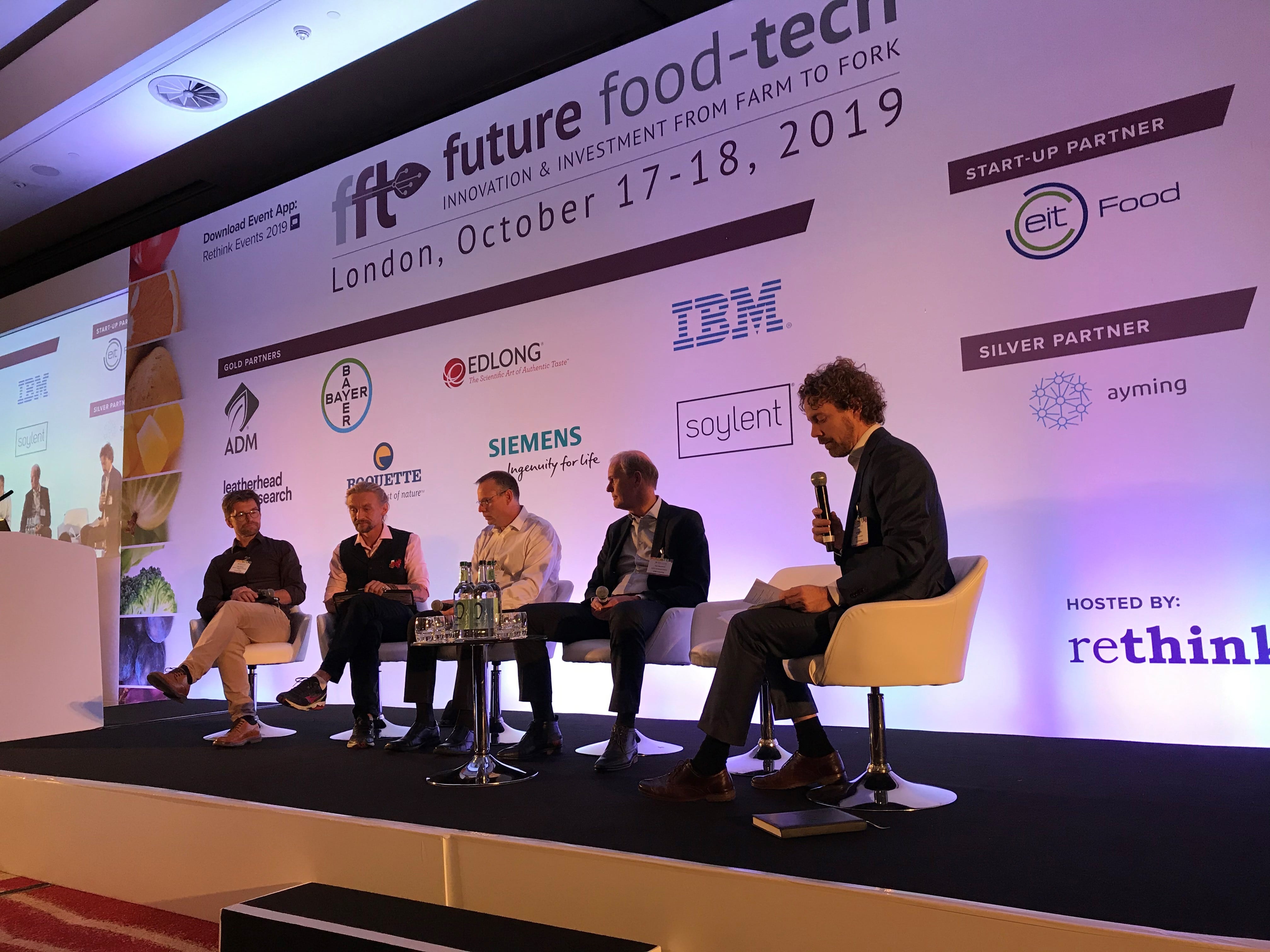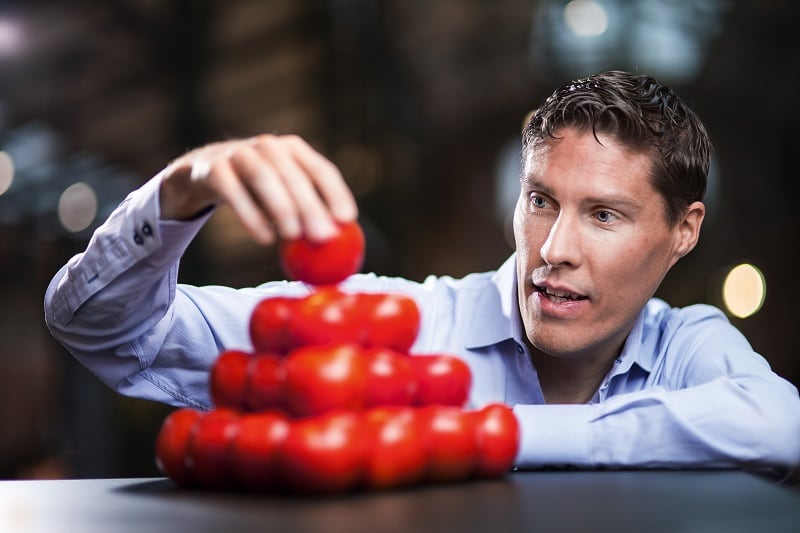The food system, in its current form, will be unable to sustain a growing global population in a sustainable way. For this reason, innovators working to re-think the future of food by developing scientific and technological solutions are attracting investment.
According to data from Tracxn, 17 deals were completed in food- and ag-tech in the EMEA region in October.
Marketplace solutions working to shorten supply chains and build closer relationships were a key feature of investment activity. France’s ProcSea picked up €6.5m to further its aim of simplifying and streamlining the seafood supply chain.
Founder Renaud Enjalnert said that the company’s ambition is to ‘promote all the players’ in the seafood sector through a digital solution that connects fishermen with buyers, wholesalers and processors. Enhalnert said that in addition to making seafood procurement easier, the company promotes sustainability by allowing people to ‘discover new spices’ and ‘work with seasonal products’.
Online delivery continued to make waves, with Spanish service provider ApetEat picking up €1m in funding and UK-based Lean Lunch completing a seed funding round. Both companies are focused on making healthy choices more convenient and available to consumers – with a particular focus on lunchtime options.
ApetEat focuses on promoting the Mediterranean diet to individual consumers and as a corporate catering service in Madrid. Meanwhile, Lean Lunch aims to deliver ‘wellbeing for people and the planet’ through its cargo cycle lunch delivery service that provides ‘at least’ three of your five-a-day, uses 100% recyclable and compostable packaging and keeps food waste to ‘almost zero’ through its advance ordering system.
Investment round-up: October
Big bet #1: Tackling food waste in Africa
A Kenyan company, Twiga Foods, attracted the largest investment of the period, securing US$30m in a Series B investment round let by Goldman Sachs, with participation from existing investors International Finance Corporation, TLcom Capital and Creadev.
The company was launched in 2014 and has developed Kenya’s only end-to-end distribution chain for fresh and processed foods. Twiga’s digital platform and logistics network links retailers with farmers and food processors.
Today, Twiga sources from more than 17,000 producers and delivers to 8,000 retailers.
“Twiga’s innovative model combines technology and modern logistics tailored to the local market to re-engineer the food supply chain,” Jules Frebault of Goldman Sachs said. The investment will enable the Twiga team to ‘scale operations’ and ‘drive sustainable access to lower cost quality food’ on the continent, he added.
The African company said it aims to tackle inefficient supply chains, helping to reduce food prices and waste. Currently, 30-50% of fresh produce is lost through ‘poor post-harvest processes’, according to the supply chain innovator. Twiga claims it has been able to reduce the level of food waste by up to 70% compared to market averages.
Peter Njonjo, CEO and co-founder at Twiga Foods, commented: “This funding enables us to invest in our technology and organisation to tackle the inefficiencies in Africa’s domestic food production and distribution ecosystems; a $300bn informal and fragmented market that is estimated to grow to $1trn by 2030. With the support of our investors, we are developing technology-driven commercial solutions and cooperating with existing industry players to solve the challenge of food security in Africa.”
With Sub-Saharan Africa’s population set to double by 2050, food security is a major challenge for the region.
As Professor Hamadi Boga, principal secretary of the Kenya State Department for Crop Development and Agricultural Research, explained: “Food security is a key priority for the Kenyan government and Twiga Foods is playing a major role in achieving this. As our population grows and urbanisation continues, it is essential that we can provide access to affordable food for as many Kenyans as possible, as well as support and promote sustainable agriculture. We commend them on their impact so far, as well as their ability to attract investment to Kenya.”
Big bet #2: EMMAC eyes canna-biz with cash injection
Regulatory uncertainty in Europe has prevented many of the regions budding cannabis, hemp and CBD companies attracting similar levels of investment as those seen in North America.
However, UK-based EMMAC Life Sciences Group was able to raise £15m in funds from a range of new and existing investors, including AIM quoted FastForward Innovations. Fresh cash comes on the back of initial seed funding of £2m, a further £6m in January this year, and again an additional £11m in March.
EMMAC claims to bring together ‘pioneering’ science and research with ‘cutting-edge’ cultivation, extraction and production.
EMMAC CEO Antonio Costanzo said that he is ‘not aware’ of any private UK medical cannabis company that has ‘raised this quantum of finds’.
“2019 has been an extremely busy year for EMMAC as we have executed our strategy to build a strong position in Europe in the medical cannabis and wellness markets, with operations in eight countries. We now have an established presence in all aspects of the cannabis supply chain and are well placed to meet the rapidly growing demands of the market, driven by regulatory change and consumer demand,” he said.
Big bet #3: Replacing barns with bioreactors
The need to develop sustainable alternatives to intensive animal agriculture is at the forefront of debate around the future of protein.
Start-up Future Meat Technologies believes it has a solution. It has developed a ‘groundbreaking’ process using GMO-free animal cells to grow meat in patented bioreactors. The company believes these bioreactors can ‘replace barns, chicken coops and meat processing factories’.
“Products are indistinguishable from animal-based meat,” according to the company.
“This disruptive technology is sustainable and cost-effective, and due to rapid growth cycles, it allows producers to adapt to changing market demands.”
The company revealed its products emit 80% fewer greenhouse gasses, use 99% less land and 96% less land than conventional meat production.
The Israeli firm raised US$14m in a Series A round that it said would be used to build the world’s first cultured meat pilot production facility. It is estimated that operations will begin in 2020.
“With this investment, we’re thrilled to bring cultured meat from the lab to the factory floor and being working with our industrial partners to bring our product to market,” said Future Meat CEO Rom Kshuk.
Significantly, Future Meat believes its production model can make cultured meat economically viable. With current small-scale production costs of $150 per pound of chicken and $200 per pound of beef, Future Meat Technologies plans to release its hybrid products at a ‘competitive’ cost level from its pilot production facility by 2021 and launch a second line of 100% cultured meat products at a cost of less than $10 per pound by 2022.
“The worldwide demand for protein is growing exponentially, and the only way to meet this demand is by fundamentally reinventing animal agriculture. Future Meat Technologies created a cost-effective solution for cultured meat manufacturing that is scalable and sustainable by design," noted Professor Yaakov Nahmias, the company's founder and chief scientist.




